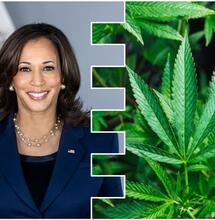Cutting Through the 'Green Tape' of Legal Cannabis

Legalization proponents warned to stand down by American, world officials
Legalization proponents warned to stand down by American, world officials
November ballots from 2012 ushered in the first-ever legalized recreational pot in America, bypassing the approach of implementing medical Cannabis laws, as previously done in eighteen states and Washington, D.C. However, while the news brought cheers from pot activists across the country, a storm began brewing. In the intervening months, the Obama administration would have been within its rights to press charges against the two states who legalized recreational pot in spite of its federal classification as a Schedule I substance. As the clock ticks and the time for action begins to run out, the anti-Cannabis outcry is growing louder.
The recent legalization victories in Washington state and Colorado began a new era for many in the pro-pot movement. Advocates and activists have long argued that the drug war creates criminals and damages society and family infrastructure, while proving ineffective against (or completely ignorant of) medical issues relating to drug use. Legalization, put simply, removes the criminal element from Cannabis production, distribution and consumption, creates tax revenue and frees up police hours and prison cells.
|
Burning hashish seized in Operation Albatross, a joint operation of Afghan officials, NATO and the DEA (Source: USGOV DOJ) |
In spite of such benefits, and as with any contentious topic in American politics, Cannabis legalization is not every voter's priority, nor is the idea even considered a good one by the many opponents of medi-weed, recreational consumption or both. As with close elections, the 'yes' vote on legal weed has riled a few concerned citizens, namely those quoting the ages-old - yet disproved - gateway drug theories. Others are concerned with the implementation of new pot laws, including whether or not 'drug dealers' will be converging upon their neighborhoods. Recent developments, however, show that the aforementioned are merely minor concerns, as the landmark legalization in both states has drawn the ire of certain government agencies.
Not everyone in the country, or indeed, the world, is happy about this hard-won progress. As United States Attorney General Eric Holder's investigation into the new pot laws winds down, many wonder if the country is about to take a giant step backwards. The true complication, however, is not a moral or even a medical objection to legal Cannabis, nor does it concern the potential loss of revenue for prisons, privatized or otherwise. The issue centers around federal scheduling of the drug, as well as its international equivalent in United Nations treaties.
In early March, former DEA administrators and the anti-Cannabis lobbying group Save Our Society From Drugs released a public joint statement demanding a government crackdown on the liberal new laws, thereby halting any implementation of legalized Cannabis. Eight former high-ranking drug officials warned the federal government that its failure to act within a very limited period of time has effectively allowed the new laws to be implemented. Inaction by the government is viewed as complicity in the legalization of Cannabis, thus the officials have appealed to the Obama administration to sue in order to halt the states' actions. These past members of the DEA insist that by suing Washington and Colorado, the government would successfully quash the distribution of licenses to Cannabis growers, handlers and retailers.
Peter Bensinger, a prior administrator for the DEA under former Presidents Ford, Carter and Reagan, told the Associated Press that he's worried that the government's inaction will promote "a domino effect," resulting in other states legalizing the substance. "My fear is that the Justice Department will do what they are doing now: do nothing and say nothing," he explained. "If they don't act now, these laws will be fully implemented in a matter of months."
The letter was posted on behalf of not just Bensinger, but also listed a bi-partisan selection of former DEA administrators, including Robert Bonner, Francis Mullen, John Bartels, Asa Hutchinson, Donnie Marshall, John Lawn and Thomas Constantine. A percentage of these former admins have profited personally from the drug war, via the private sector.
Head of the Drug Policy Alliance, Ethan Nadelmann, responded to the DEA's desperate plea to President Obama, telling Huffington Post, "The former DEA chiefs' statement can best be seen as a self-interested plea to validate the costly and failed policies they championed but that Americans are now rejecting at the ballot box."
|
Part of $207 million confiscated during the bust of an illegal drug ring, a tiny slice of illicit drug profits (Source: PD-USGOV-DOJ) |
In addition, some Americans, both pro- and anti-, feel that the DEA's insistence upon quashing the new laws is hypocritical - regardless of whether it comes from former or current members - considering that the group is funded mostly via seized assets from drug raids, in particular those that are Cannabis-related. This includes the recent DEA actions against California's medical Cannabis dispensaries, in spite of the Obama administration's promise of "prioritizing" other crimes above pot busts.
From a legal standpoint, Cannabis proponents argue that the Constitution protects state law enforcement agencies from enforcing federal law. This would technically nullify the struggle between completely legal pot within a particular state's law, and the federal restrictions that groups such as the DEA insist supersede any measures passed by said state.
It seems that an answer is not exactly imminent. Attorney General Holder addressed the Senate Judiciary Committee Hearing on March 7th, saying only, "We are considering what the federal response to those new statutes will be."
While Cannabis legalization may be supported by a slim majority on American soil, unfortunately for the legalization movement, the problem has reached global proportions. The Obama administration, by failing to shut down the states' legalization tactics, is also breaking international drug treaties. The DEA heads' statement was released on the fifth of March - the same day that an agency of the United Nations, the International Narcotics Control Board or INCB, released their own annual report. Within the pages was an urgent appeal to federal officials to "ensure full compliance with the international drug control treaties on its entire territory."



